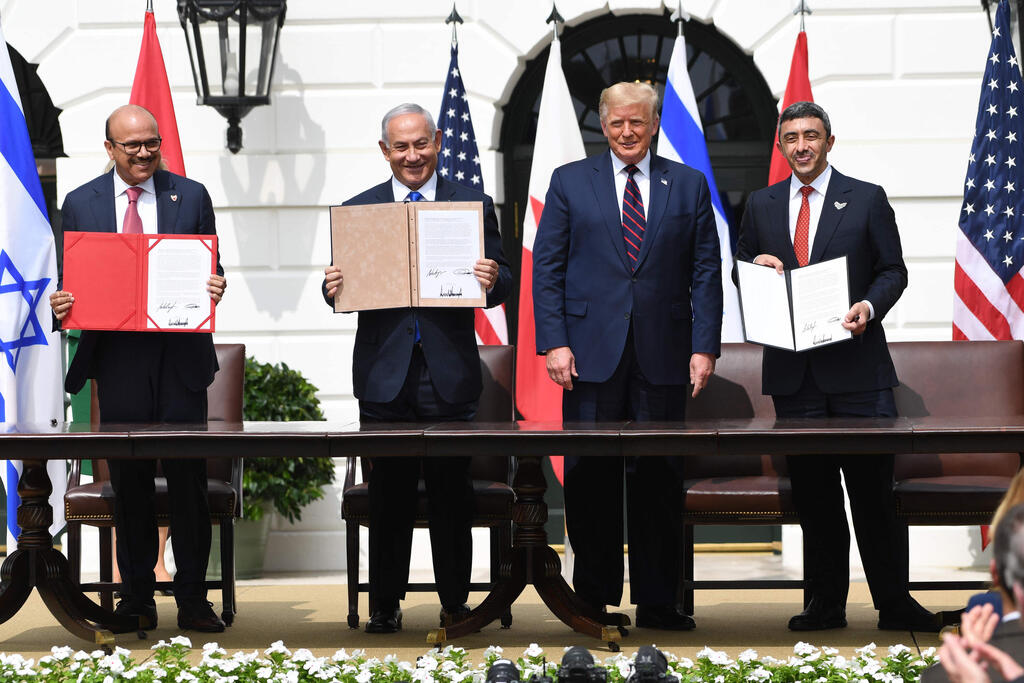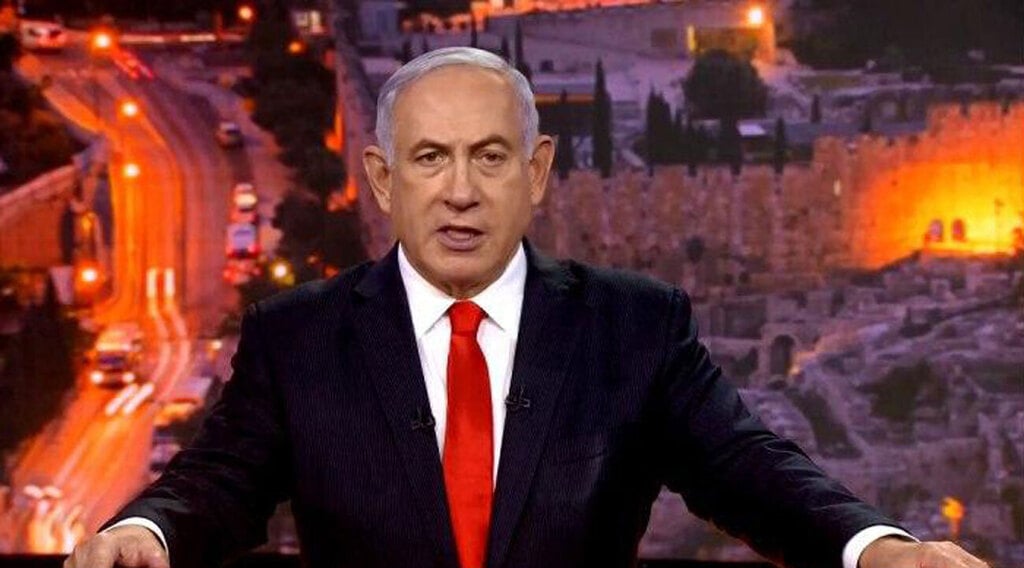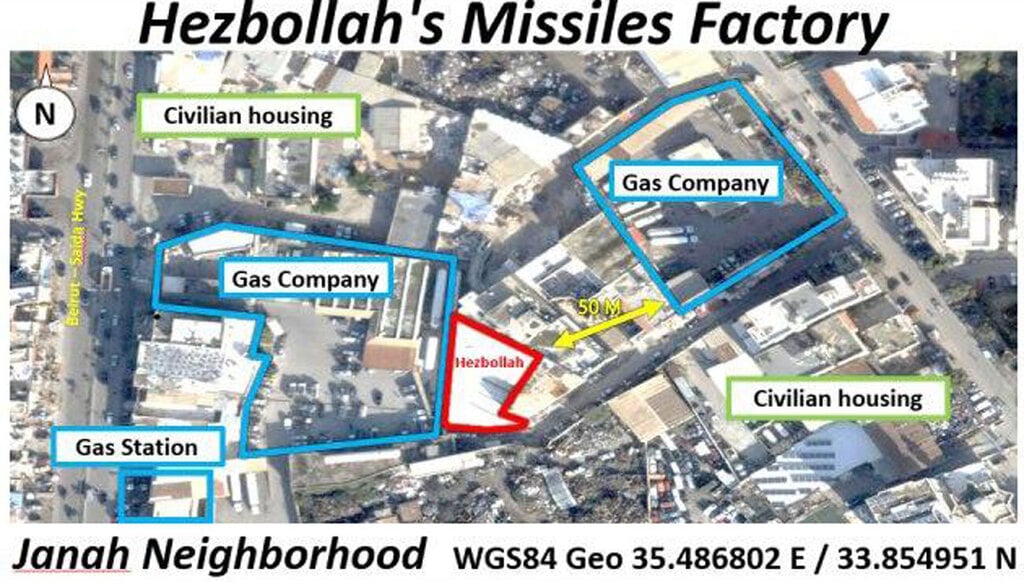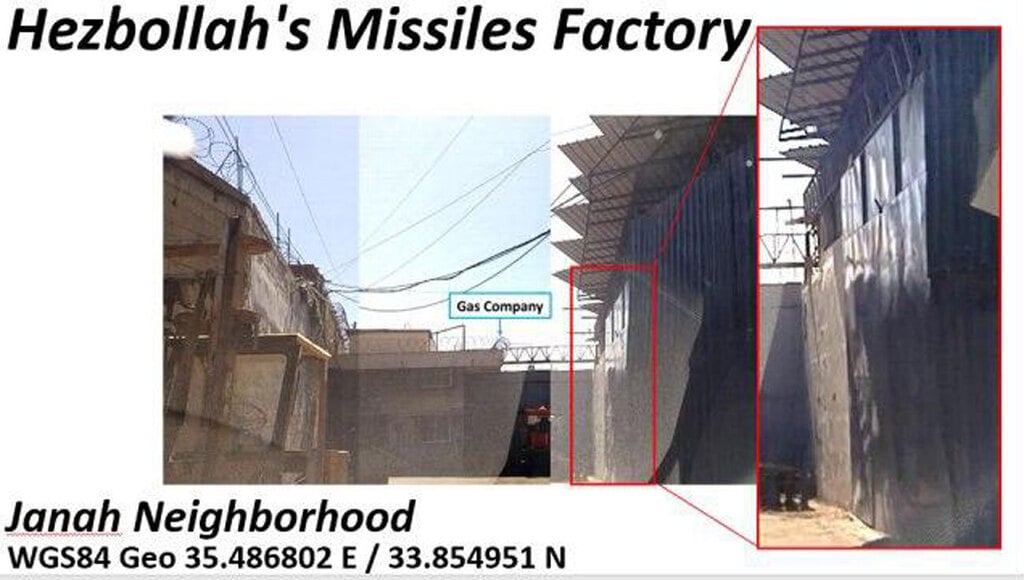Hezbollah is hiding a missile factory in Beirut among civilians just as it did in the city's now-devastated port, Prime Minister Benjamin Netanyahu said Tuesday as he addressed the United Nations General Assembly.
The prime minister, who like many other world leaders gave a recorded speech and did not attend the annual New York gathering due to COVID-19, produced his trademark graphics to illustrate his claim that the Iranian-backed group had a weapons plant in the Jannah neighborhood of the Lebanese capital. To make matters worse, Netanyahu said, the plant was even located next to a gas station.
He cited the massive explosion at Beirut port in early August, which was triggered by tons of ammonium nitrate allegedly being used by Hezbollah, and warned that the same thing could happen in Jannah.
(Video: UN Web TV)
The United Nations must insist that Hezbollah stop using Lebanese people as "human shields," he said.
Netanyahu also praised the two treaties Israel signed this month with the United Arab Emirates and Bahrain, which he said would lead to greater harmony and cooperation in the Middle East.
He hailed what he said was an expanding wave of Israel normalization in the Middle East and said he had "no doubt that more Arab countries will be joining the circle of peace soon."
Like Bahrain and the UAE, Netanyahu said that the agreements between them would help to end the conflict with the Palestinians.
"Expanding circle of peace will not make peace between Israel and Palestinians less likely, it will make peace between Israel and Palestinians more likely," Netanyahu told the General Assembly.
4 View gallery


L-R: Bahrain FM Abdullatif al-Zayani, PM Benjamin Netanyahu, U.S. President Donald Trump and UAE Foreign Minister Abdullah bin Zayed Al-Nahyan at the signing of the Abraham Accords at the White House
(Photo: AFP)
He struck a tougher note, however, with the Palestinians, who he said no longer had a veto over Arab attitudes to Israel.
He urged the Palestinian leadership to return to talks with Israel, saying that he "would be willing to negotiate on the basis of the Trump peace plan to end our conflict with the Palestinians once and for all."






